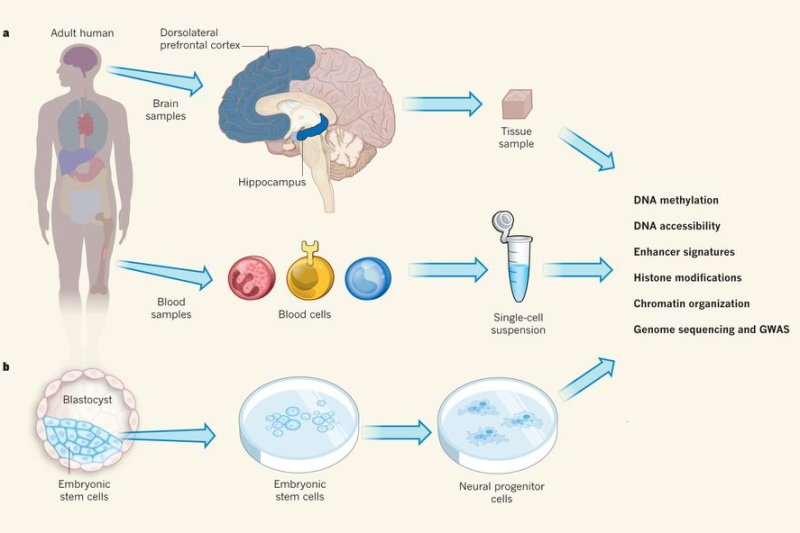An illustrated roadmap helps explain how genes are regulated. Photo by Romanoski et al/Nature
SAN FRANCISCO, Feb. 18 (UPI) -- At team of geneticists from across the country have built the most comprehensive map of human epigenomes -- both expansive and detailed. It's the culmination of almost a decade of research into gene expression.
In recent years, doctors, researchers and the pharmaceutical industry have become increasingly interested in better understanding disease from an epigenomic perspective. The human genome is stable and consistent in every cell type -- the same balled up strands of DNA sequences are distributed throughout the entirety of the body.
Epigenomes, on the other hand, vary. They are a separate set of chemical instructions that govern access to DNA. In determining which parts of the DNA sequence get transcribed into proteins and where, epigenomes are integral to gene expression.
"By guiding how genes are expressed, epigenomes allow cells carrying the same DNA to differentiate into the more than 200 types found in the human body," explained Joseph F. Costello, a geneticist at the University of California, San Francisco and director of one the four NIH Roadmap Epigenome Mapping Centers responsible for the new research.
Increasingly, doctors are of the opinion that most mutations and genetic maladies that lead to diseases like cancer, occur in the epigenomic arena.
"You've had cancer researchers studying the genome -- the role of mutations, deletions, and so on -- and others studying epigenomes," Costello said. "They've almost been working on parallel tracks, and they didn't talk to each other all that much."
Costello and his colleagues around the country say that's already beginning to change. They believe their new research -- including 24 new papers describing human epigenomes -- will further facilitate a merging of the two tracks.
"Over the past five or six years, there's been a reframing of the discussion, because the most recurrent mutations in cancer affect epigenomic regulators," Costello added. "So the way mutations in the genome play out is through epigenomic mechanisms, and major pharmaceutical companies now view epigenomes as an important target."
The comprehensive map, and the 24 papers illuminating it, will be made available for free on the website of the science journal Nature. Much of the research has already been published online.















